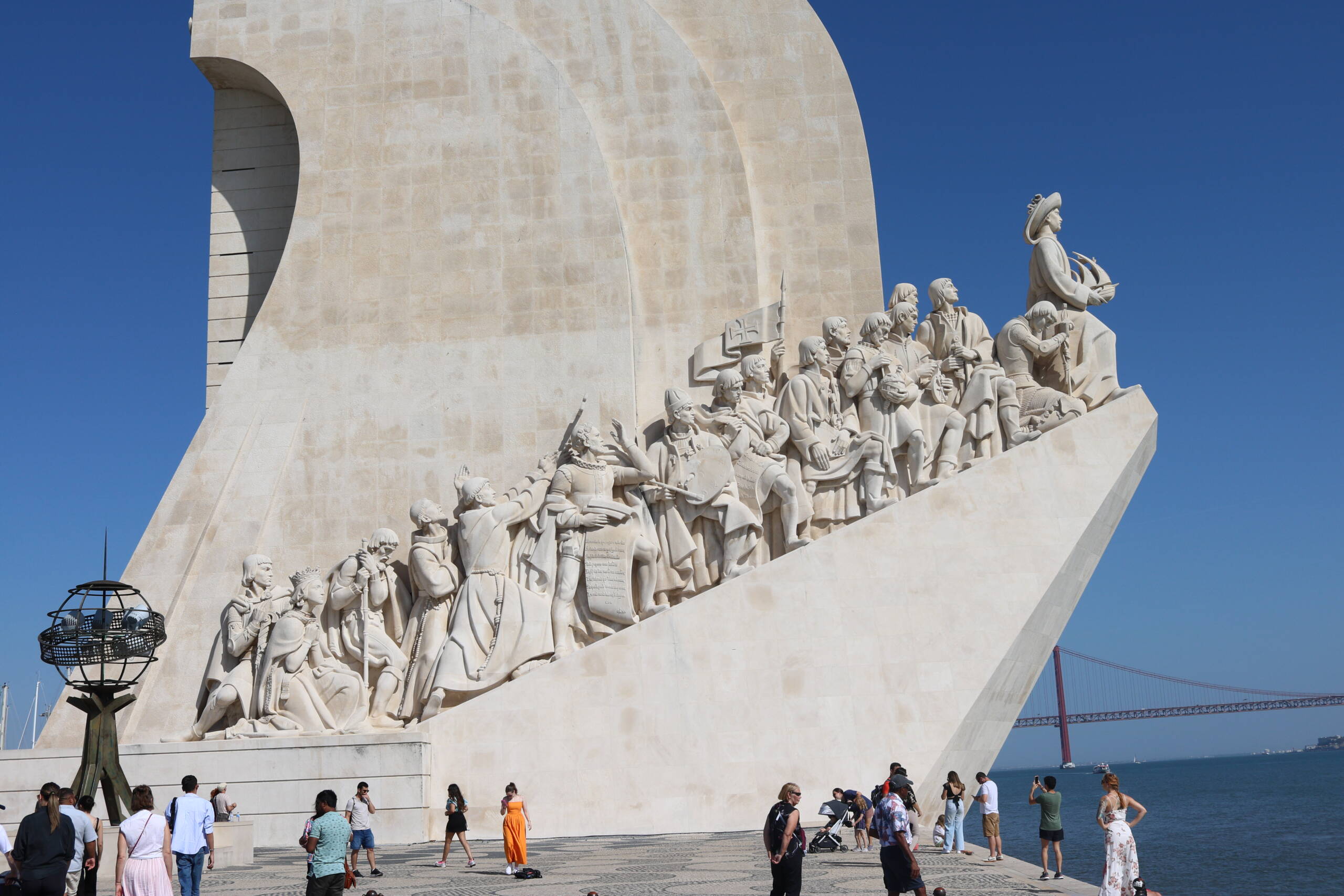As I stood on the waterfront in Belém, Lisbon, gazing up at the imposing Padrão dos Descobrimentos, I couldn’t help but feel a surge of admiration for Portugal’s storied past. The monument, shaped like the prow of a caravel ship, towers 52 meters high and features over 30 statues of explorers, navigators, and visionaries from the 15th and 16th centuries—figures like Henry the Navigator leading the charge into unknown seas. Built in 1960 to commemorate the 500th anniversary of Henry’s death, it symbolizes the Age of Discovery, when Portuguese sailors boldly ventured out to expand their nation’s horizons, charting new worlds and establishing a global empire. In the photo I snapped (much like the one above), tourists mill about below the sculpted procession, with the iconic 25 de Abril Bridge stretching across the Tagus River in the background, under a brilliant blue sky. It’s a scene that captures the essence of Portugal’s adventurous spirit—a nation that once sent its people outward to conquer and innovate.

But as I reflected on this monument to outward expansion, a stark irony hit me: today, Portugal isn’t sending explorers out; instead, it’s being overrun by waves of immigrants pouring in. What was once a symbol of national pride now stands as a poignant reminder of what could be lost if mass immigration continues unchecked. In a country of just over 10 million people, the foreign-born population has surged by about one million between 2020 and 2025 alone. This isn’t the controlled, beneficial migration of skilled contributors; it’s a flood that’s straining resources, inflating housing costs, and eroding the cultural fabric that makes places like this monument worth visiting.
Recent surveys show that around 70% of Portuguese citizens want less immigration, citing rising crime, overburdened public services, and a loss of national identity. Neighborhoods in Lisbon are transforming, with locals complaining that their city now resembles foreign enclaves, complete with increased violence and businesses shutting down after dark out of fear. The influx, particularly from non-European countries like Brazil, India, and Africa, has fueled a political backlash—evidenced by the rise of the far-right Chega party, which has propelled anti-immigration policies into the mainstream. Just this year, Portugal’s government, with Chega’s support, passed tougher laws restricting family reunification, job search visas, and automatic residencies, aiming to curb the chaos.
From a traveler’s perspective, this matters. The charm of Portugal—its historic sites, tight-knit communities, and unique heritage—is at risk. Imagine the Padrão dos Descobrimentos surrounded not by proud locals and curious visitors, but by the tensions of overpopulation and cultural dilution. Young Portuguese are emigrating in droves due to lack of opportunities, while immigrants fill the void without integrating, creating a vicious cycle. If we want to keep experiencing authentic European destinations like this, nations must prioritize their own citizens and control their borders. Portugal’s recent crackdown is a step in the right direction—proof that even socialist strongholds are waking up to the realities of unchecked immigration.
As I walked away from the monument, with the river breeze at my back, I thought: the explorers immortalized here didn’t invite the world to overrun their homeland; they went out to claim it. Portugal should honor that legacy by protecting its sovereignty today. If you’re planning a trip to Lisbon, visit this site—it’s a powerful reminder of what true national ambition looks like. But let’s hope the country acts fast to preserve it for future generations.
Leave a Reply